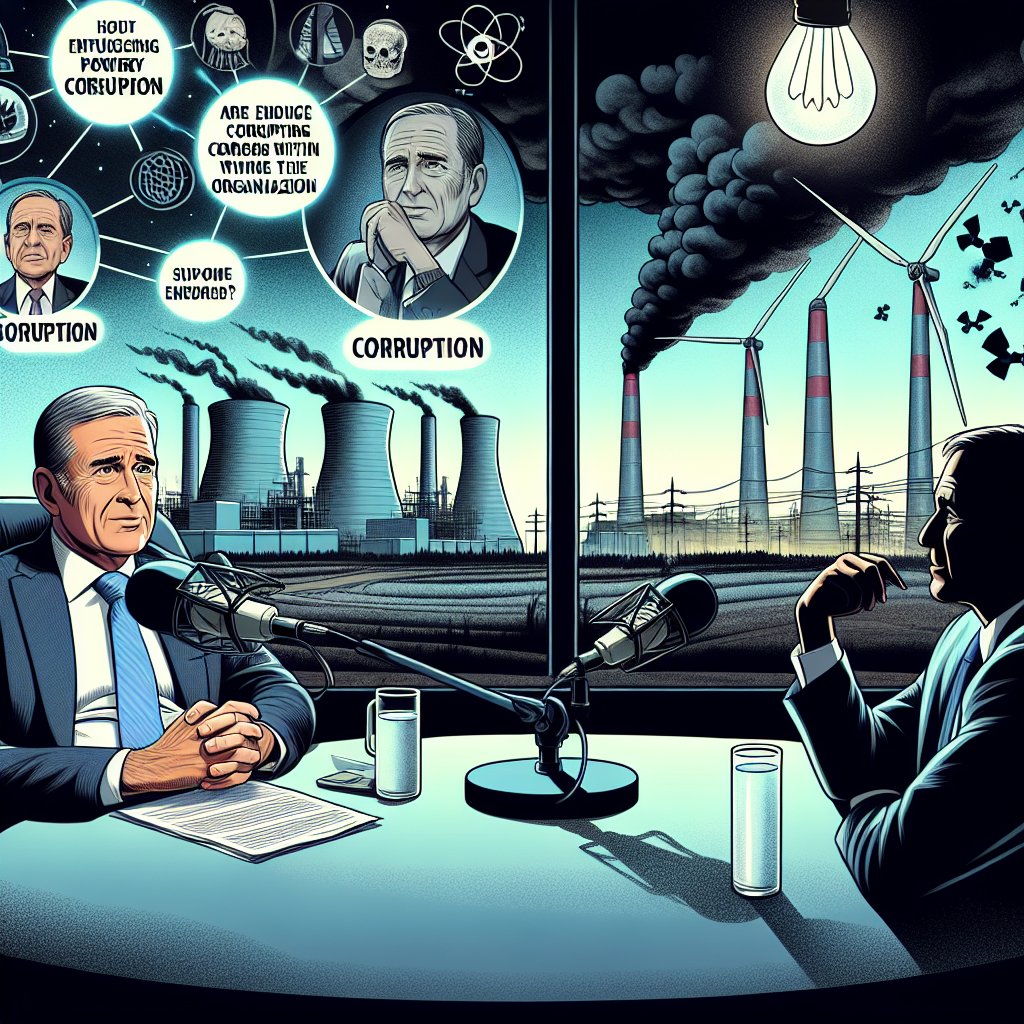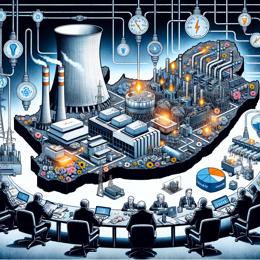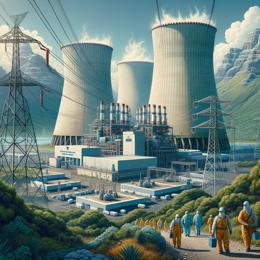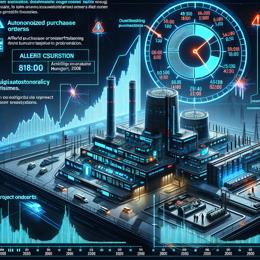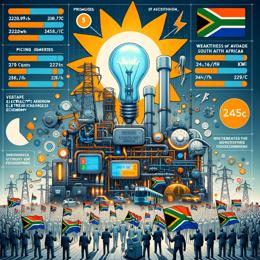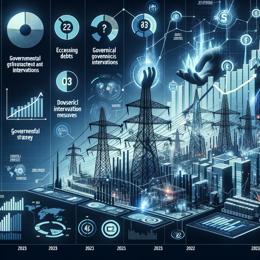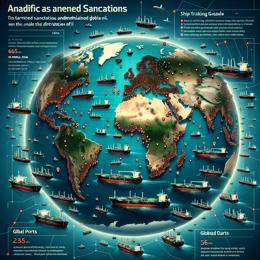Content created by AI
Criminal Cartels and Corruption at Eskom: A Deep Dive into André de Ruyter’s Allegations
André de Ruyter, the former CEO of Eskom, South Africa’s embattled power utility, has offered a damning indictment of the workings within the organization, alleging the presence of deeply entrenched criminal elements that have brought the company to its knees through massive ongoing theft and corruption.
In an eye-opening interview on the Business Day Spotlight podcast, de Ruyter, who has been central to the narrative surrounding Eskom's operational challenges, elucidated the gravity of the situation. He voiced concerns that the criminal activities, which could be pilfering over R1 billion from Eskom monthly, are not only apparent but seem to have been overlooked or even tolerated by those in power.
As the CEO who has recently left his post amid controversy, de Ruyter claimed that his vocal stance on the corruption has led to actions that would otherwise not have materialized, like the redeployment of top police officials in Mpumalanga, the presence of military personnel at power stations, and insiders coming forward. His intent to shake the status quo and uncover the systemic rot has led to significant pushback, which speaks volumes about the intense pressure to maintain the veil over Eskom's deeply ingrained issues.
According to de Ruyter, stopping this rampant corruption is about more than restoring operational stability and workflow at Eskom; it directly impacts South Africa's energy future. The criminal networks allegedly have a vested interest in stalling the nation's transition from coal to more sustainable, greener, and cheaper energy technologies. Their activities, he suggests, are derailing crucial policy directions necessary for greening the economy and securing energy sustainability for future generations.
His statements indeed highlight a battle not just against corruption, but also for the potential of South Africa to forge a path towards a smarter, cleaner, and more efficient energy landscape.
This corruption within Eskom does not merely translate into financial losses, but it also exacerbates the country's load-shedding issues, hampering economic growth, deterring potential investment and undermining overall trust in the government's ability to manage crucial state-owned enterprises.
De Ruyter's decision to go public with his claims ideally should serve as a catalyst for broader and more intensive scrutiny, regulatory overhaul, and decisive legal action. If the allegations hold, the implications are that Eskom is not only facing difficulties due to aging infrastructure and maintenance backlogs but that it is also hemorrhaging funds, perpetuating inefficiency and vicious cycles of energy insecurity due to criminal interference.
For South Africa, these revelations are particularly disconcerting because they point to a systemic problem of governance and oversight. The ripple effects of such endemic corruption resonate beyond Eskom, potentially affecting every South African citizen and the overall health of the nation's economy.
It is incumbent upon the law enforcement agencies, policymakers, and the South African public to demand accountability and transparency, and to support efforts to clean the rot within Eskom and other state institutions.
De Ruyter's candid revelations have propelled Eskom into a state of urgent reckoning. It is a call to arms that should not be taken lightly, for the stakes involve the very fabric of South African society and its ambitions for a sustainable and prosperous future.
